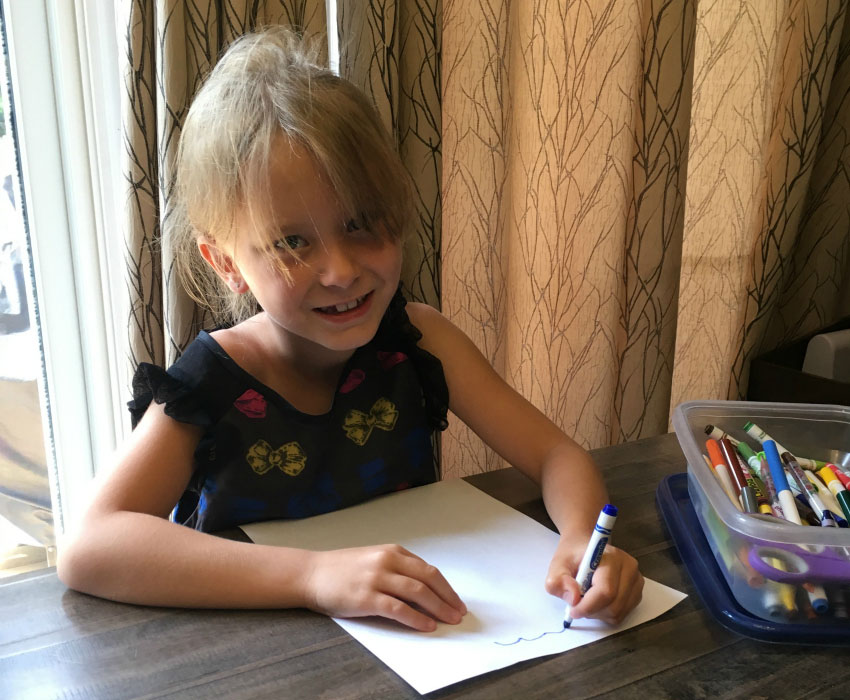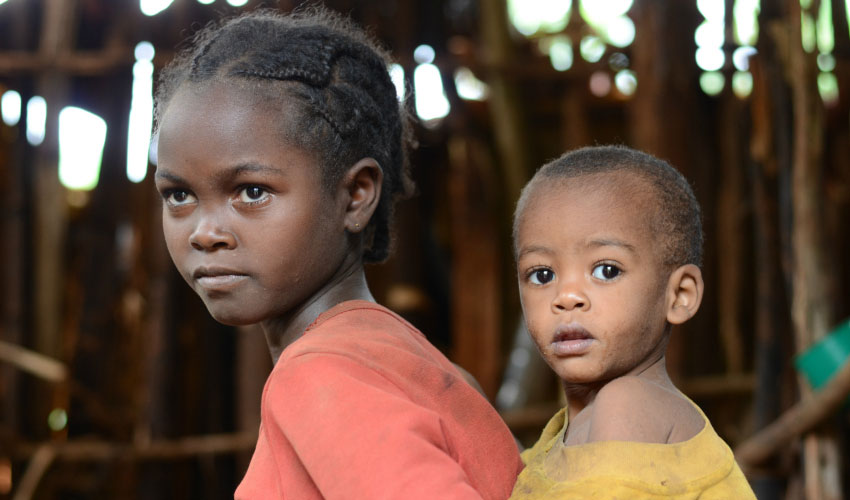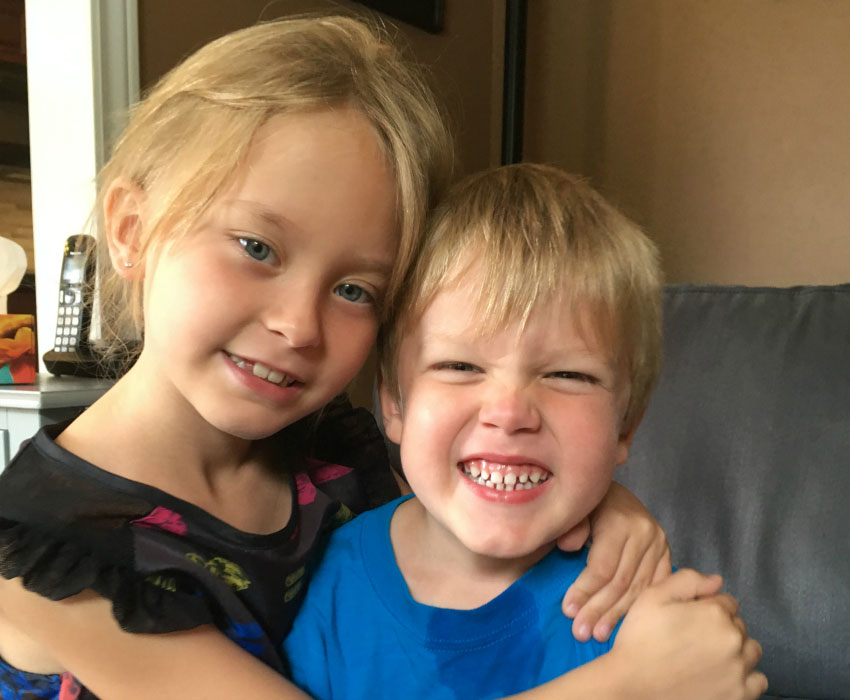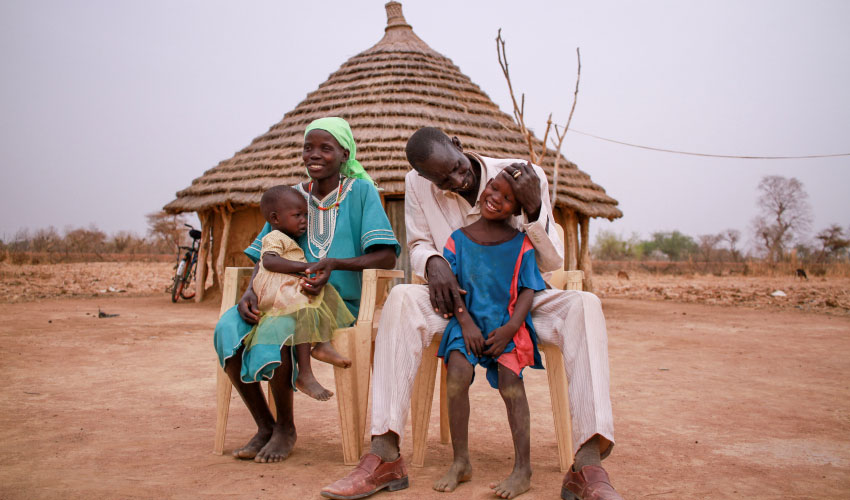Eight year-old Maddy is pretty excited about school starting. School is great because she gets to “learn stuff.” She’s a Canadian student and the daughter of a World Vision colleague. Maddy loves activity time in her classroom. “I colour during activity time,” she says.
 Maddy does her favourite activity- colouring!
Maddy does her favourite activity- colouring!
Maddy’s little brother Micah is going to school too, and he’s very ready to learn about dinosaurs and bring peanut butter and jelly sandwiches for lunch.
 Micah does his best impression of a dinosaur
Micah does his best impression of a dinosaur
It’s hard to imagine a world where little Maddy would have to stay home from school to take care of her younger brother.
But in Ethiopia, that’s exactly what 10-year-old Marta is facing. Instead of learning and colouring like Maddy this September, she’ll be babysitting her little brother Abush.
Marta’s mom and dad recently separated. Marta’s mom is a coffee farmer, but the coffee trees didn’t produce enough last year and their family suffered.
“We don’t get enough food,” says Marta while carrying two-year-old brother Abush on her back.
Marta’s mom goes out to work every day, to make sure Marta and her five siblings have enough food to eat, leaving Marta to care for Abush.
 Marta and Abush
Marta and Abush
And yet, despite Marta’s best efforts, Abush is malnourished. He is on a World Vision emergency nutrition program where he eats Plumpy Nut to try to gain weight and become healthy. Plumpy Nut is a peanut butter paste that has rich proteins, minerals and nutrients included in it to help children quickly gain weight and end the risk of death
Here in Canada, Maddy knows that Mommy is the one to keep both her and Micah fed and healthy.
If she had to stay home to care for Micah, Maddy says, it would be “very hard.”
 Maddy gives little brother Micah a hug.
Maddy gives little brother Micah a hug.
“And if my brother was a baby I would have to do all the chores my parents would. I’d have to get him all the stuff he asks for,” she says. She pauses: “Unless it’s bad. Like when he asks for chocolate for breakfast.”
We can smile at Maddy’s comments because having to drop out of school will never be a reality for her.
But here in the Horn of Africa, more than 1.4 million children are out of school due to the hunger crisis.
The lack of rain in this part of Ethiopia, along with poor market prices for coffee, small land sizes and the predominance of farmers only growing one crop have led more than 500 children under age five in this community to become severely malnourished.
Alazar Shenkoru works for the local government’s health department and explains “When the community doesn’t get enough money from the coffee harvest, they don’t have enough money to buy food for their children,” he says.
“If this continues, it cannot be good for the future,” adds World Vision’s Getahun Mara, an emergency response nutrition officer.
World Vision is responding to the hunger crisis in this part of Ethiopia, along with similar crises in Kenya, Somalia and South Sudan. With your help, we’re helping deliver food assistance to thousands of families who are in crisis.
 A family that World Vision has helped through their FEED program in South Sudan
A family that World Vision has helped through their FEED program in South Sudan
World Vision nurses are also partnering with the local health workers to provide training so that malnourished children like Abush are given the best possible care and treatment.
To address the situation for the longer term, World Vision is also helping mothers with children under age five form gardening groups and savings clubs. This way, families won’t be relying on a single crop to provide for their needs. They will have enough money set aside during times when poor weather creates havoc.
Still, I find myself worried about the children who I have met. I wish they too could be excited about the upcoming school year, about lunch boxes full of food and about playing with friends, instead of worrying about how their younger siblings will survive.
Mark Nonkes is a Canadian humanitarian worker and writer currently based in Nairobi. He has worked in 17 countries for World Vision and is focusing on a hunger crisis affecting 25 million people in eastern Africa.